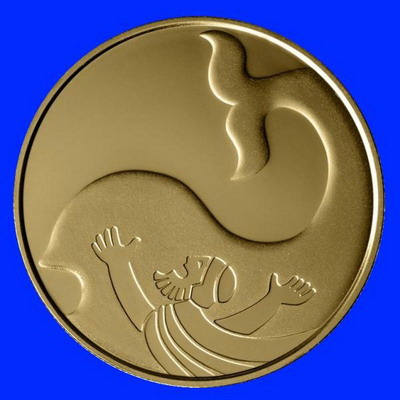Were the Ancient Hebrews the Same as the Habiru?
by Yair Davidiy
| Site Contents by Subject |
Home Research Revelation Reconciliation |
|
Publications |
Site Map Contents in Alphabetical Order |
This Site |
|
| Site Contents by Subject |
Home Research Revelation Reconciliation |
|
Publications |
Site Map Contents in Alphabetical Order |
This Site |
|
| Jonah (1:9) Described Himself as a Hebrew! | ||
 |
 |
|
Wikipedia: ExtractsWe see from the above that Habiru are considered to have been the original Hebrews.
Hiberu and Apiru
## Habiru or Apiru or pr.w (Egyptian)[1] was the name given by various Sumerian, Egyptian, Akkadian, Hittite, Mitanni, and Ugaritic sources (dated, roughly, between 1800 BC and 1100 BC) to a group of people living as nomadic invaders in areas of the Fertile Crescent from Northeastern Mesopotamia and Iran to the borders of Egypt in Canaan.[2] Depending on the source and epoch, these Habiru are variously described as nomadic or semi-nomadic, rebels, outlaws, raiders, mercenaries, and bowmen, servants, slaves, migrant laborers, etc.
The names Habiru and Apiru are used in Akkadian cuneiform texts. The corresponding name in the Egyptian script appears to be pr.w, conventionally pronounced Apiru (W,or u-vowel "quail-chick" being used as the Egyptian plural suffix). In Mesopotamian records they are also identified by the Sumerian logogram SA.KAS (or SA.GAZ), of unknown pronunciation. The name Habiru was also found in the Amarna letters, which again include many names of Canaanite peoples written in Akkadian. etc, etc. ###
cf. Accadian h may represent other letters than Hebrew H. Meredith Kline.Habiru may derive from the root HBR (cHBR): This is pronounced in Modern Hebrew, "chaver". It means friend or member of a union or something similar.
| Jonah (1:9) Described Himself as a Hebrew! | ||
 | ||
|
Further Study: For a useful academic discussion of the sources (that unfortunately neglects the alternative Chabiru etymology) see: THE HA-BI-RU -KIN OR FOE OF ISRAEL? MEREDITH G. KLINE. THE HA-BI-RU--KIN OR FOE OF ISRAEL? SECOND ARTICLE MEREDITH G. KLINE . THE HA-BI-RU--KIN OR FOE OF ISRAEL? THIRD ARTICLE MEREDITH G. KLINE Quote: p.54 The initial consonant is ambiguous because Accadian h may represent other letters than Hebrew H;205 He also says (but does not prove it): # there can be no doubt that the Ugaritic and Egyptian forms of the name definitely require that the consonant represented in the cuneiform syllable ha be read as 'Ayin.216 # Even if Kline is correct on this point however it does not mean that everywhere else the same rule holds. The Egyptian and Ugaritic usages are SEPARATE CASES! Ugarit may turn out to have been a Hebrew settlement. Its language was a Hebrew form of Canaanite written in cuneiform text. The use of the term Chabiru (Habiru) in Ugarit merits study in its own right. In general throughout the Middle East, Habiru means member of a group; Ha-ivri (Ibri) means Outsider or Hebrew. Here and there the two concepts may have merged but they were not the same in their orgins and therefore do not necessarily refer to the same peoples! |
Correspond with us
Send Comments or Criticisms
You may not always receive an immediate answer
but anything you say will be considered and appreciated
Send us an
e-mail
Books and Offering Opportunities
Main Page